Yin and Yang
The Yin and Yang Paradigm in Traditional Chinese Medicine: An Exploration
Beginning a journey into the depths of Traditional Chinese Medicine (TCM), one inevitably encounters the ancient and intricate concept of Yin and Yang. These foundational principles, deeply rooted in Chinese philosophy and Taoism, embody the very essence of balance and harmony. This article seeks to unravel the rich tapestry of Yin and Yang, diving into their significance within the context of TCM, theory, and medicine. By expanding on the intricate dance of opposites, symbiotic interdependence, mutual transformation, and the cyclical nature of consumption, this article aims to illuminate the depth and wisdom encapsulated in this encompassing philosophy.
The four most basic yet profound, relationships between Yin and Yang are;
They are Opposing Forces
They are Interdependent
They are Mutually Transformative
They are Mutually Consuming
One very important concept is understanding that things are never set alone, and always in relation to something. So when thinking of Yin and Yang context and relationship is everything. These two forces are ever-present in everything, in varying degrees, they are not oppositional or in conflict, but interrelated and dynamic.

Yin and Yang
are combined to
produce the activities of life
are called spirit (Shen).
兩 精 相 搏 謂 之 神
-Huang Di Nei Jing
Four Basic Concepts of Yin and Yang
1.Opposites
At the heart of TCM lies the principle of opposites, symbolized by the interplay of Yin and Yang. These polarities represent not only stark contrasts but also the intrinsic unity that exists within them.
Yin, embodying qualities of darkness, passivity, and receptivity, stands in a dynamic equilibrium with Yang, representing light, activity, and assertiveness. The essence of Yin and Yang lies not in their isolation but in their mutual dependence.
Within the human body, the manifestations of Yin and Yang are manyfold. Yin finds expression in the more substantial, nurturing elements such as blood, fluids, and organs, while Yang is associated with the energetic, warm, and dynamic aspects, more associated with function than form. The balance between these opposing forces is paramount to health, with TCM emphasizing the recognition and correction of imbalances being the main treatment principle. Understanding the interplay of Yin and Yang in diagnosis and treatment enables practitioners to address disharmony and promote well-being.
2. Interdependence
The concept of interdependence lies at the core of Yin and Yang philosophy. Far from being isolated entities, Yin and Yang are intrinsically connected, each containing a seed of the other. This interdependence is vividly depicted in the iconic Yin-Yang symbol, a visual representation of the perpetual transformation and exchange between these two forces.
In TCM, the interdependence of Yin and Yang serves as a lens through which to perceive the dynamic processes within the body. Health, according to TCM, is a dynamic state where these forces are in constant flux, responding to both external and internal influences. TCM practitioners seek to identify and rectify imbalances of Yin and Yang through modalities like acupuncture, herbal medicine, and lifestyle adjustments. The interconnectedness of these forces becomes a guiding principle for restoring equilibrium and fostering optimal health.
3. Mutually Transformative
The transformative nature of Yin and Yang adds another layer of complexity to their symbiotic relationship. This principle recognizes the inherent dynamism of the universe, hence our body, where nothing remains static, and everything undergoes perpetual transformation. Yin has the potential to transform into Yang, and vice versa, creating a continuous cycle of renewal and regeneration.
In the human body's context, Yin and Yang's transformative nature is evident in the cyclical processes of sleep and wakefulness, femininity and masculinity, and the various seasons of life. TCM practitioners work to leverage this understanding in the diagnosis and treatment of patients by recognizing patterns. For example, a deficiency in Yin may manifest as symptoms associated with dryness and deficient heat, while a deficiency in Yang may result in excess cold and stagnation. By grasping these transformative processes, TCM practitioners can tailor treatments to support the body's innate ability to adapt and regenerate.
4. Mutually Consuming
The concept of mutual consumption underscores the interaction between Yin and Yang, where each force has the potential to consume or control the other. This nuanced relationship is pivotal in comprehending the ebb and flow of energy within the body.
In a state of health, the interaction between Yin and Yang involves a harmonious consumption where neither force overwhelms the other. However, imbalances can occur, leading to scenarios where one force consumes the other excessively. An excess of Yang may result in symptoms of hyperactivity, while an excess of Yin can lead to lethargy and stagnation. TCM treatments are designed to restore equilibrium by addressing the root cause of these imbalances, preventing the undue consumption of one force over the other.
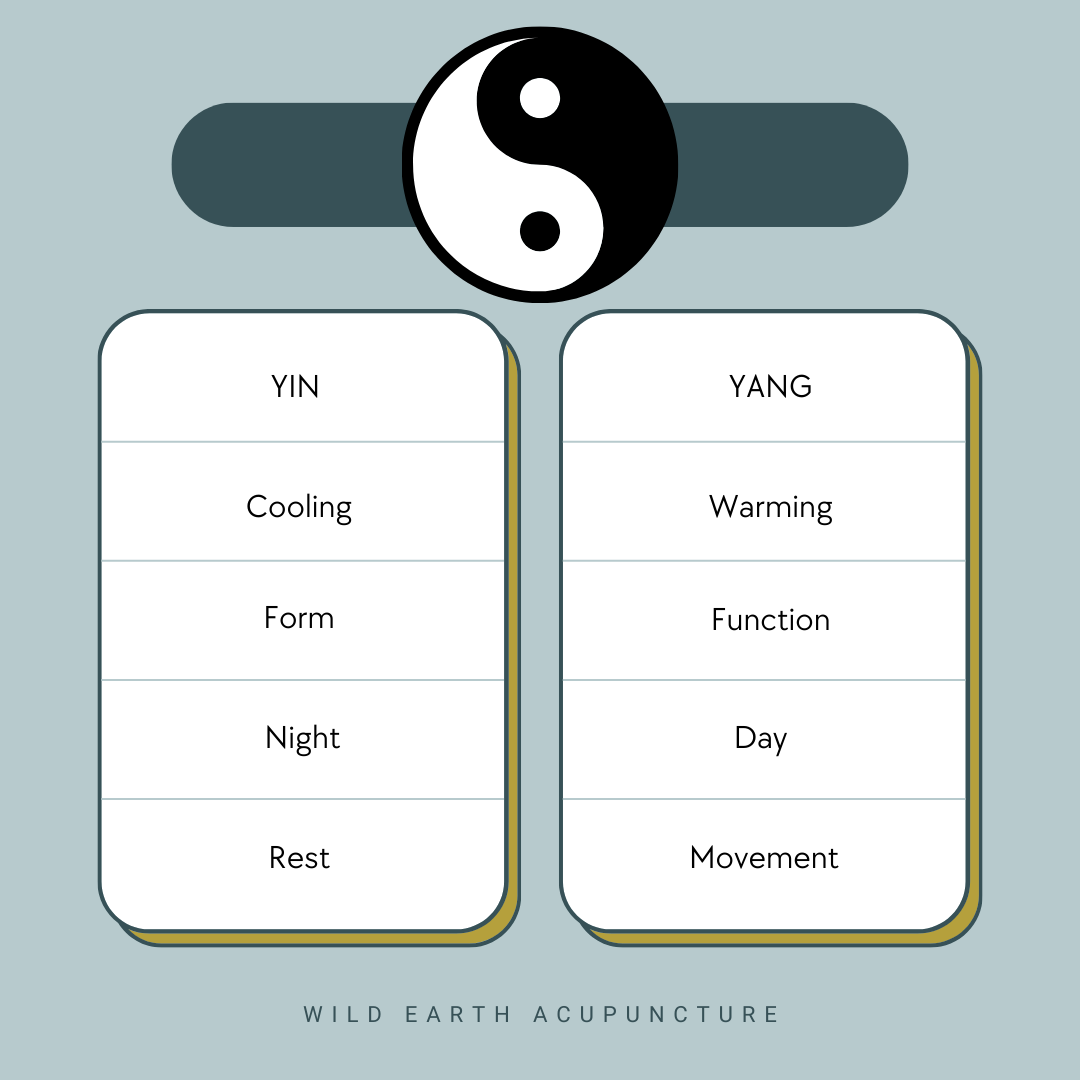
In navigating the vast landscape of TCM, the principles of Yin and Yang emerge as beacons, offering profound insights into the dynamic interplay of opposites, interdependence, transformation, and consumption.
“ All things carry Yin yet embrace Yang. They blend their life breaths in order to produce harmony.”
As practitioners and enthusiasts alike embrace this theory, it becomes not only about understanding it but embodying and recognizing it within nature and ourselves. This theory continues to inspire and inform, reminding us of the intricate interconnectedness of all aspects of life and urging us to seek balance in our own existence.

Want to Learn more?
Discover how acupuncture can calm your mind, balance your body, and support lasting relief from anxiety. Learn what to expect in a session, how it works, and why more people are turning to this natural solution for modern-day stress.
This article explores the mind-body connection in Chinese Medicine, a concept known as the Shen. It helps explains the 5 aspects of the Shen and their links to Organ Systems and meridians.
Learn about Kidney Yang Deficiency in Traditional Chinese Medicine, including signs, symptoms, food choices, and lifestyle tips to restore balance and vitality. Discover a warming recipe to support Kidney Yang health.
This article explains the Liver Organ System in Chinese Medicine.. and goes into detail about its functions and importance upon governing the smooth flow of Qi, and hence overall well-being.
In this article, we dive into the essence of the San Jiao and its significance as three distinct divisions, and one complete system, of the body.
This article explores what Chinese Medicine teaches us about aging gracefully, and the important role of food, herbs, and exercise in maintaining vitality and well-being as we age.
Discover how Traditional Chinese Medicine uses tongue diagnosis to reveal imbalances in Qi, Blood, and Organ health.
Cupping therapy is an amazing and feel-good modality that can help a wide variety of aliments. Read on to learn more.
This article explores the nutritional principles of TCM and how they can be applied to support fertility naturally.
This article provides a concise explanation of Dampness in Traditional Chinese Medicine and highlights foods to avoid if experiencing related symptoms.
This article explains Five Element theory in Traditional Chinese Medicine and the importance of it to create dynamic health and wellness.
Chinese Dietary therapy is a unique way at looking at food choice and how they interact with our bodies. This article give an in-depth explanation and hopefully makes it easy to incorporate into your life.
This article explains how to "Build Blood" from Traditional Chinese Medicine with recipes, herbs and more!
This article dives into seasonal eating from a Chinese Medicine perspective- By integrating these tips into your approach to seasonal eating, you can enhance your overall nutrition, support your body's natural rhythms, and promote a sense of balance and vitality throughout the changing seasons.
Moxabustion is an amazing heat therapy often used in conjunction with Acupuncture and Chinese Medicine treatments. Mona, known commonly as mugwort, helps to bring warmth to the body, heal injuries, reduce pain, boost digestion and much more. Read on to learn about its actions, indications and benefits!
This article explains the basics and importance of the Five Flavors in Tradtional Chinese Medicine Nutriton. Read on to learn more.
Interested in how colors can impact your health? Read on to learn about color therapy and TCM.
This article goes into depth about how Acupuncture and Chinese Medicine can benefit your fertility and promote a sense of well-being.
This article explains endometriosis and possible natural solutions to help ease symptoms.
This is a guide for living a life more in alignment with your health goals through proper food choices and mindful eating. It explains basic TCM nutritional theory as well as offers a few recipes to make the FIVE FLAVORS easier to incorporate into your life.
This article explores some common ailments that Chinese medicine can effectively treat, supported by evidence-based research.
In this article, we dive into the fundamentals of Kidney Yin Deficiency, its symptoms, and causes, and explore holistic approaches to its management.
The Traditional Chinese Medicine Organ Clock, or Body Clock, explains how Qi flows through our body within 24 hours. By aligning our activities with the natural rhythms of the body, we can enhance productivity, support digestion, and cultivate better sleep habits. Read to learn more
Qi is a word known to many people, but often not fully understood. This article goes into depth of what Qi is and how it mainifests within the body from a perspective of Chinese Medicine.
This article explains how acupuncture, massage and other healthcare modalities are covered in the state of Oregon, for motor vehicle accidents, under the Personal Injury Protection (PIP) plan. Read on to learn the steps to take to get free healthcare after a car accident.
Acupuncture can offer relief for acute and chronic pain. This article explains when to turn to acupuncture for support.
Are you frustrated easily? Feeling a lot of angst? Possibly aches in your side, or feelings of a pit stuck in your throat? Do you get overwhelmed by emotional stress? Are you waking up at night? Liver Qi Stagnation might be what’s going on. Read on to learn about what to do about it.
This article dives into aspects of wellness and self-care that can help bring you more in alignment with Winter and the natural rhythms of your body.
Feeling Hungry?
This simple receipe for nourishing chicken can easily become a staple in your household!
Fireside tonic has been used in natural medicine to help ward off colds and boost digestion. This article offers an east to follow recipe.
Quick pickles are some of my fav dishes- Heres an easy recipe for pickled Daikon Radish!
This simple tea recipe talks about the benefits of goji, da zao, and longan tea, with an easy delicious recipe for vitality and beauty!
This recipe is for turmeric paste, an amazing way to prepare turmeric to make easy and potent lattes, curries, herbal remedies.
This Refreshing Cucumber Salad with rice wine vinegar offers a perfect balance of tangy, sweet, and savory flavors, with a hint of sesame and garlic for a light yet flavorful side dish.
This recipe is for a quick pickled onion, which makes a delicious and healthy addition to many dishes.
Lenore Cangeloso is a Board Certified Acupuncturist, Clinical Herbalist and avid writer based in Southeast Portland.
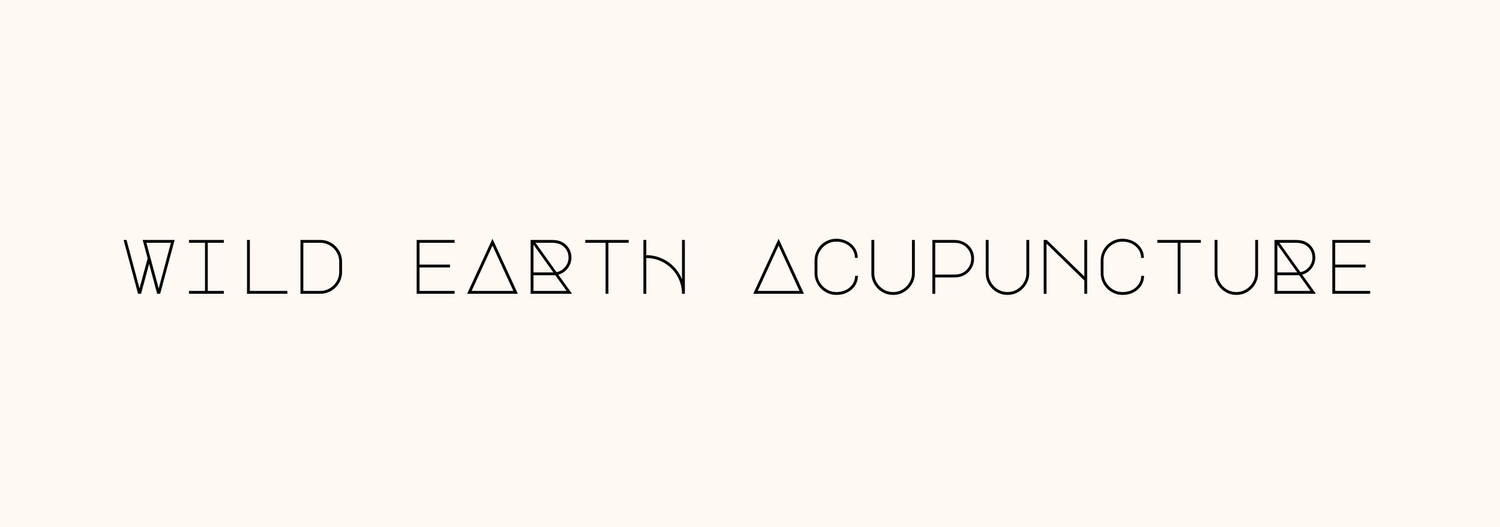





























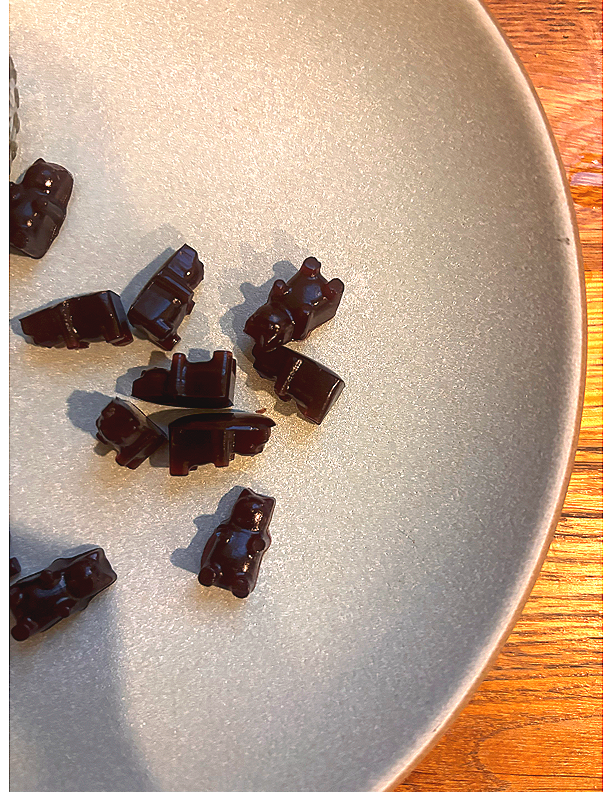







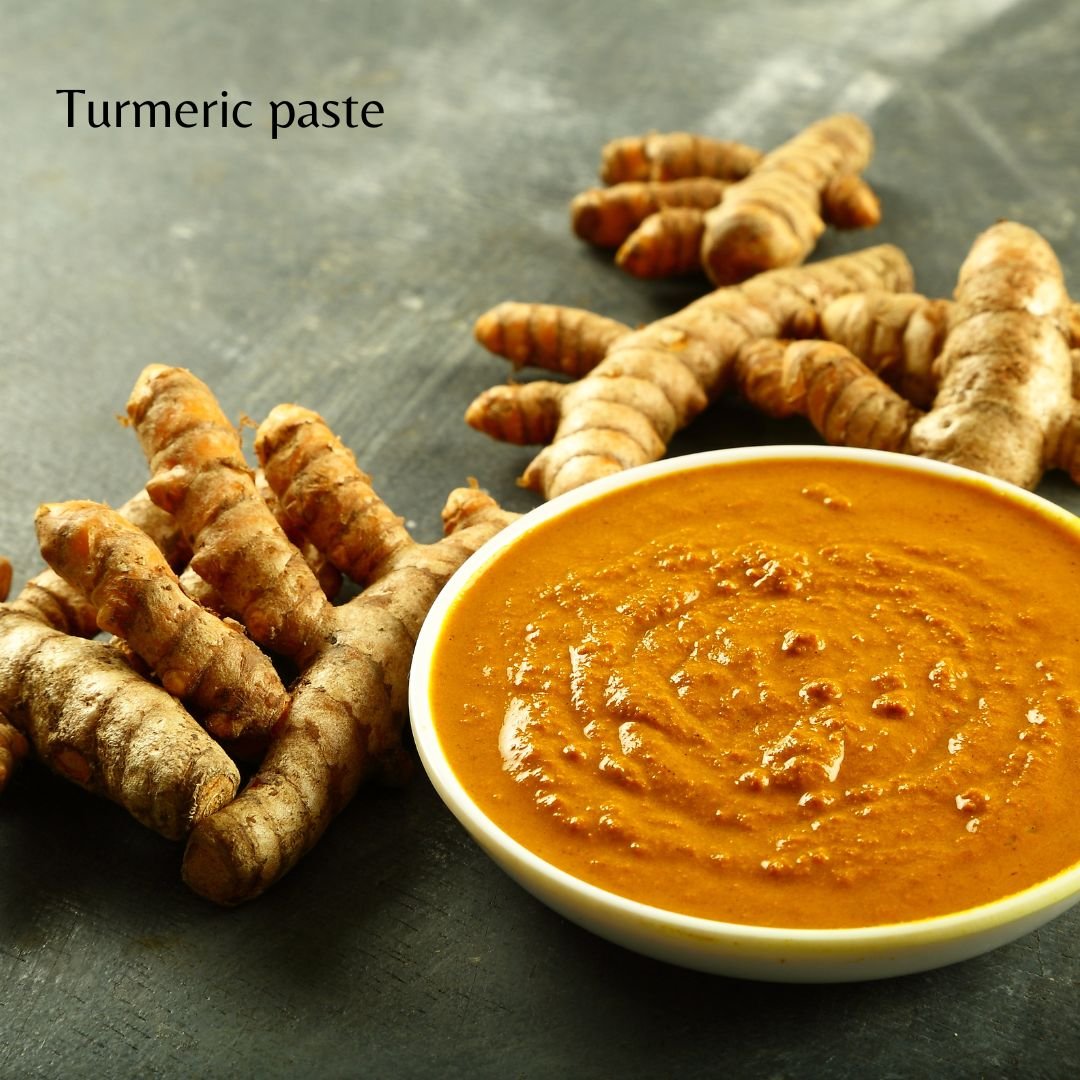





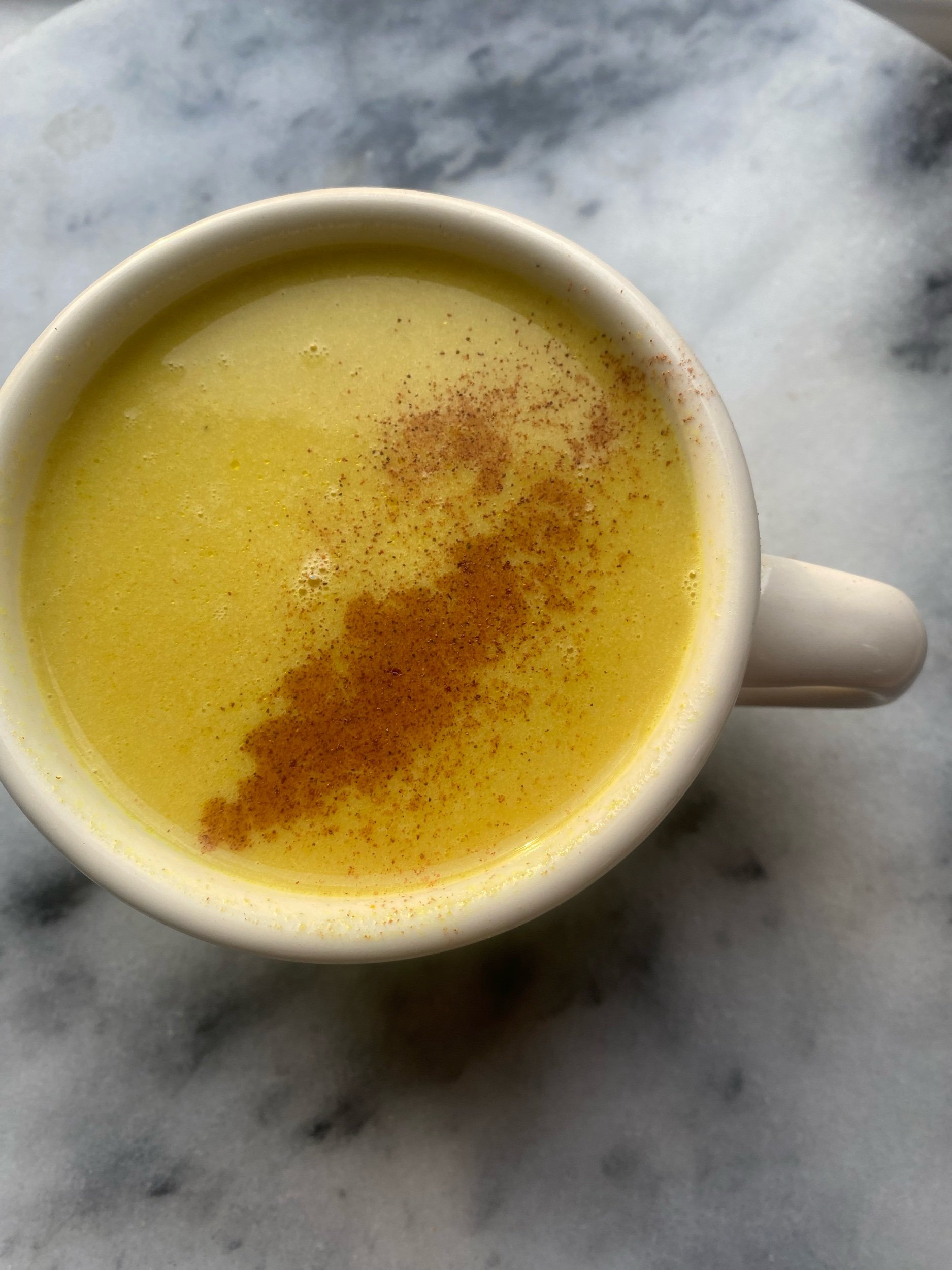


Bone broth is valued all over the world for its delicious taste and highly nutritious components. It is rich in vitamins, minerals, collagen, gelatin, keratin and stock full of amino acids. Read on to learn a super easy recipe!